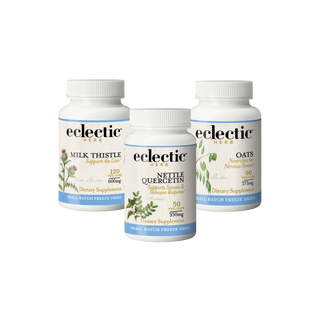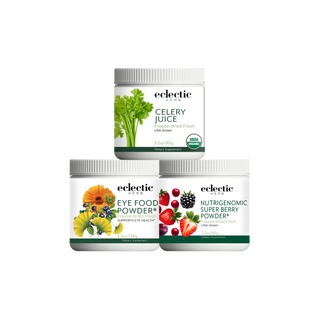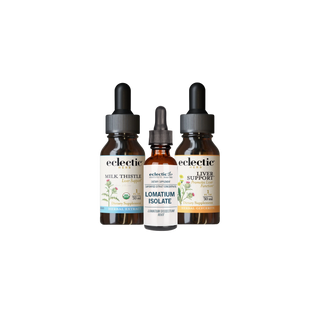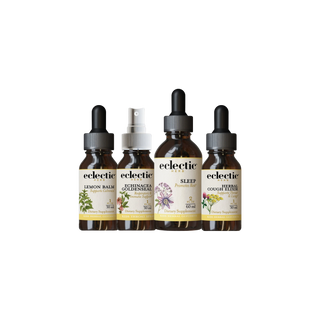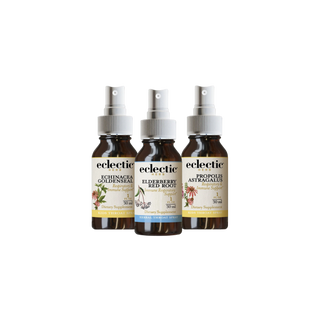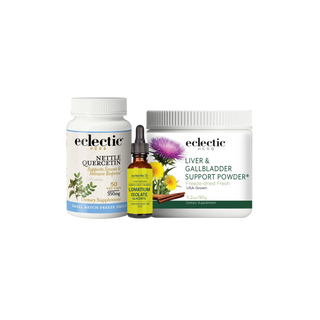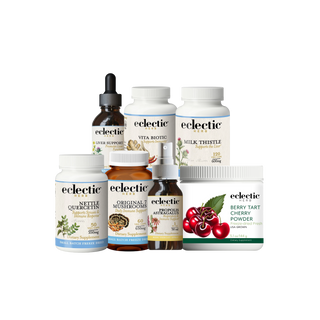
About the Dr. Ed Alstat Memorial Scholarship for Botanical Medicine
The Dr. Ed Alstat Memorial Scholarship for Botanical Medicine honors the enduring legacy of a man whose passion for plants helped shape the future of natural medicine. Established by Christine Alstat, Owner of Eclectic Herb, this annual scholarship supports students at the National University of Natural Medicine who share a deep commitment to botanical medicine and the healing wisdom of nature.
Dr. Alstat, a pharmacist and 1981 graduate of NUNM (then NCNM), founded Eclectic Herb with a vision to preserve the purity, potency, and spirit of plants through science and innovation. His leadership extended beyond the company — he helped establish the first NCNM clinical Medicinary and played an instrumental role in securing the college’s financial stability during a difficult period. In recognition of these contributions, he was inducted into the NCNM Hall of Fame in 2011.
The scholarship is awarded each year to a full-time naturopathic medical student who demonstrates both financial need and a genuine dedication to botanical medicine. Applicants share their personal experiences with plants and reflect on how they plan to carry the practice of botanical medicine forward — ensuring its integrity, safety, and accessibility for future generations.
Through this scholarship, Eclectic Herb continues Dr. Alstat’s legacy of nurturing the next generation of naturopathic physicians — those who walk the same path of curiosity, compassion, and respect for the healing power of nature.
2025 Ed Alstat Scholarship Winner: Maggie Davison
"This scholarship will help me bring my vision of making holistic, patient-centered care more accessible to life."
Born and raised in Oregon, Maggie grew up surrounded by the beauty of nature and the rhythm of farm life — experiences that nurtured her early respect for living systems and holistic wellness. She holds a B.A. in Psychology from the University of San Diego and spent time living in Hawai‘i before returning home to pursue her doctorate in naturopathic medicine.
In addition to her studies, Maggie is a registered yoga teacher and co-owner of The Hope Connection, a therapy practice founded by her mother. Her vision is to expand this practice by integrating naturopathic medicine, creating a collaborative model of care that supports both physical and emotional healing.

Essay: Dr. Ed Alstat Memorial Scholarship for Botanical Medicine
Please share your personal experiences with botanical medicine and how they have influenced your journey in naturopathic medicine. Discuss how you plan to integrate botanical medicine into your future practice and why ensuring the quality and safety of botanical medicines is essential for patient care and the integrity of the profession.
My Introduction to Botanical Medicine: My introduction to botanical medicine was not through a textbook, but through personal necessity. In early 2023, after struggling with a range of vague but disruptive symptoms such as digestive discomfort, food sensitivities, fatigue, and brain fog, I sought care from a naturopathic doctor for the first time. Conventional routes had left me feeling unseen and unsupported, with little more than generic advice and symptom suppression.
This visit was different, in the best way possible. My ND asked about my stress levels, sleep patterns, diet, and emotional well-being. She introduced me to the Candida diet and explained how imbalances in my gut microbiome might be contributing to my symptoms. She also recommended several botanical and nutritional supplements to support my body’s natural healing process. That visit marked a turning point, not only in my health, but in how I saw medicine.
A Turning Point in Understanding: As I followed the plan laid out for me—removing inflammatory foods, increasing nutrient-dense meals, and incorporating botanical support and vitamin supplementation—I began to feel better. This led me to ask more questions. Why were some products significantly more expensive than others? Why did certain formulas work better for me than others that supposedly contained the same ingredients?
Through this experience, I learned firsthand that not all botanical supplements are created equal. Sourcing, potency, manufacturing standards, and even delivery methods can dramatically affect a product’s safety and efficacy. As someone who had never looked closely at the fine print on supplement bottles, I was surprised, but a little overwhelmed by the amount of variability in quality.
My ND helped guide me to professional-grade formulas and explained why she only recommended products from trusted companies with third-party testing and rigorous quality control. Her attention to detail built trust. I realized how important it was for me, as a future naturopathic doctor, to be equally discerning and only offer botanicals that I would confidently use myself.
The Role of Botanicals in Whole-Person Healing: That initial experience shaped the way I view botanical medicine not just as a support tool, but as a foundational part of whole-person healing. Botanicals bridge the gap between nature and physiology, offering powerful therapeutic potential when used with care, respect, and deep knowledge.
As a naturopathic medical student, I’m continually in awe of how plants interact with the human system: how nervines can regulate the stress response, how bitters can stimulate digestion, and how adaptogens can restore resilience. Yet I also recognize the responsibility that comes with prescribing them. These are not benign substances; they are medicine, and like all medicine, they require a solid understanding of pharmacology, contraindications, interactions, and appropriate dosing.
My Future Practice: In my future practice, I plan to integrate botanical medicine as a central pillar of care. Whether I’m supporting someone through hormonal transitions, chronic gut dysfunction, fatigue, or emotional burnout, I know that plants will often be part of the conversation.
More importantly, I want to remove the barriers my younger self experienced. I want my patients to walk out of my office not with a long, overwhelming list of products to hunt down, but with quality, practitioner-approved options available on site. This isn’t just about convenience; it’s about outcomes. When patients can begin their protocol right away, with confidence in the products they’re using, treatment is more effective, adherence improves, and trust is strengthened.
I also intend to make botanical medicine as affordable and accessible as possible. I understand how defeating it can feel to be handed an expensive list of supplements that you can’t afford to fill, only delaying one’s healing journey. To me, integrity in this profession means making the best care truly available — not just in theory, but in practice as well.
A Commitment to Integrity and Sustainability: Ultimately, I am deeply committed to preserving the integrity of botanical medicine as a respected clinical tool. This means continuing to learn, staying current with research, growing my botanical materia medica knowledge, and being mindful of sustainability and sourcing. It means advocating for responsible regulation, ethical harvesting, and education for patients so they understand not only what they’re taking, but why.
My journey with botanical medicine has evolved into a lifelong commitment to healing, informed by science, guided by nature, and grounded in compassion. As I step into the role of doctor, I carry with me the memory of being the patient — uncertain, curious, and searching for someone to guide me toward balance. Botanical medicine played a significant role in helping me reconnect with myself. Now, it’s part of what drives me to help others do the same.


